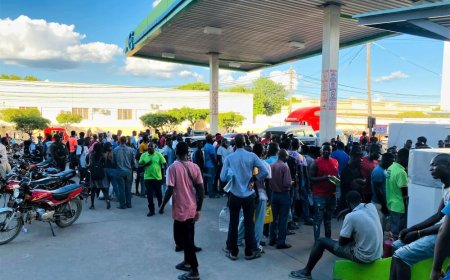Over 90% of electoral dispute cases dismissed by district courts
The Supreme Court today released preliminary data on electoral disputes and violations filed with district courts during Mozambique's October 9 general elections. Out of 142 appeals submitted, approximately 95% were dismissed, according to Supreme Court Justice and spokesperson Pedro Nhatitima.
Of the total, only 9 appeals were judged and decided, representing about 5% of cases, with the decisions forwarded to the Constitutional Council for further review and assessment of any broader impact. The data suggests that district court rulings did not significantly affect the overall electoral process.
Most appeals were dismissed for various reasons, including lack of prior challenge, untimeliness, and insufficient evidence. Nhatitima noted that many appeals contained general allegations unsupported by evidence, and even when courts conducted investigations, these claims could not be substantiated.
During the election period, district courts received a total of 305 cases related to electoral disputes and violations, with 46% classified as disputes (142 cases) and 54% as violations (163 cases). Sofala, Zambézia, and Nampula recorded the highest numbers of appeals, with 27, 26, and 21 cases, respectively. Meanwhile, Maputo, Cabo Delgado, and Manica had the fewest, with 3, 3, and 7 cases each.
Of the 305 cases, 265 citizens were charged, leading to 78 convictions, 83 acquittals, and 104 pending trials. The party with the highest number of appeals was PODEMOS, filing 70 appeals, followed by Renamo with 51 and the Democratic Movement of Mozambique with 15.
Some appellants requested annulment or a repeat of the elections, citing alleged severe irregularities at polling stations. However, these requests were denied, as only the Constitutional Council has the authority to rule on such matters. In the few cases where appeals were granted, discrepancies included mismatches between the number of voters and ballots, refusal by STAE to accept complaints, and failure to summon party representatives to observe vote counting.




















